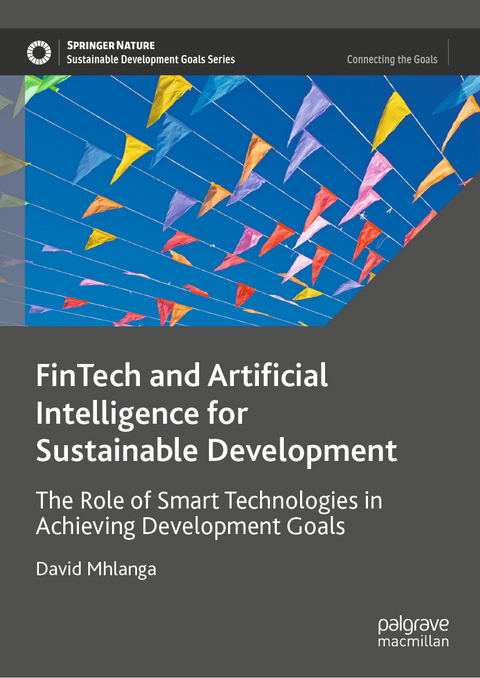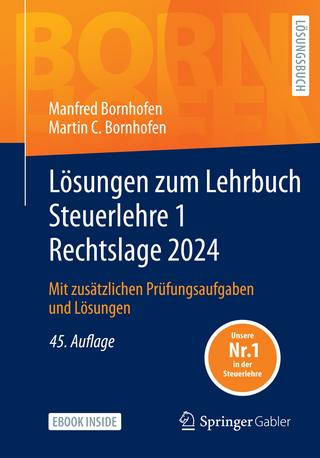
FinTech and Artificial Intelligence for Sustainable Development
Springer International Publishing (Verlag)
978-3-031-37775-4 (ISBN)
This book investigates how smart technologies can play a crucial role in the achievement of the UN Sustainable Development Goals. Focusing on FinTech as well as artificial intelligence, the author demonstrates how one of the most effective strategies for accelerating progress toward global development goals is to make use of emerging technologies to broaden and deepen the scope of action. The first part of the book offers a historical perspective on sustainable development, financial technology and the emergence of the Fourth Industrial Revolution, while the second part looks in-depth at new technologies that can contribute to the realization of the SDGs. The power of AI to reduce poverty and increase food security, the implications of digital innovations for education, the impact of AI on clean transport, the role of FinTech in mitigating climate change, and ways in which AI can aid financial inclusion are all discussed.
lt;p>David Mhlanga is a Senior Research Fellow at the University of Johannesburg, South Africa. His research topics include financial inclusion, poverty studies, and Industry 4.0. His wider subject areas include development economics, the economics of artificial intelligence, health, and education economics. He is the author of Digital Financial Inclusion, published by Palgrave in 2022.
Part I. Introduction and background.- 1. FinTech and Artificial Intelligence for Sustainable Development: The Role of Smart Technologies in Achieving Development Goals.- 2. Exploring the Evolution of Artificial Intelligence and the Fourth Industrial Revolution an Overview.- 3. Financial Technology (FinTech) an Introduction.- 4. A Historical Perspective on Sustainable Development and the Sustainable Development Goals.- Part II. Advancing the sustainable development goals (sdgs) with fintech and artificial intelligence.- 5. Fintech and Artificial Intelligence in Addressing Poverty, Towards Sustainable Development.- 6. The Role of Fintech and AI in Agriculture, Towards Eradicating Hunger and Ensure Food Security.- 7. Financial Technology, Artificial Intelligence and The Health Sector, Lessons Are We Learning on Good Health and Well-Being.- 8. Financial Technology, Digital Transformation, and Quality Education in the Fourth Industrial Revolution.- 9. Artificial Intelligence and Machine Learning in Making Transport, Safer, Cleaner, More Reliable and Efficient in Emerging Markets.- 10. FinTech and Climate-related Challenges in the Fourth Industrial Revolution.- 11. Artificial Intelligence and Machine Learning in the Power Sector.- 12. Block Chain for Digital Financial Inclusion Towards Reduced Inequalities.- 13. The Power of Smart Technologies for Global Partnership for Development.- 14. Fintech and Financial Inclusion: Application of AI to the Problem of Financial Exclusion What Are the Challenges.- 15. FinTech for Sustainable Development in Emerging Markets with Case Studies.- 16. Artificial Intelligence and Machine Learning for Sustainable Development Case studies in Emerging markets.- Part III. conclusion and policy recommendations.- 17. Conclusion on FinTech and Artificial Intelligence for Sustainable Development: The Role of Smart Technologies in Achieving Development Goals.
| Erscheinungsdatum | 26.07.2023 |
|---|---|
| Reihe/Serie | Sustainable Development Goals Series |
| Zusatzinfo | XXIV, 428 p. 45 illus., 44 illus. in color. |
| Verlagsort | Cham |
| Sprache | englisch |
| Maße | 148 x 210 mm |
| Gewicht | 714 g |
| Themenwelt | Wirtschaft ► Betriebswirtschaft / Management ► Finanzierung |
| Schlagworte | AI • Artificial Intelligence • Artificial Intelligence in Agriculture • Blockchain • Climate finance • Financial Inclusion • FinTech • food security • fourth industrial revolution • Human-Centred AI • Industry 4.0 • machine learning • Partnership for the Goals • stakeholder capitalism • Sustainable Development Goals • Sustainable Economic Development • The Role of Artificial Intelligence in Addressing Poverty |
| ISBN-10 | 3-031-37775-3 / 3031377753 |
| ISBN-13 | 978-3-031-37775-4 / 9783031377754 |
| Zustand | Neuware |
| Haben Sie eine Frage zum Produkt? |
aus dem Bereich


